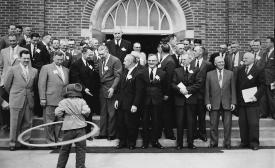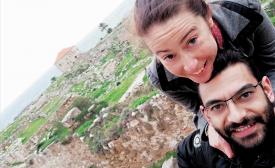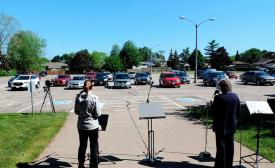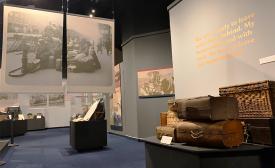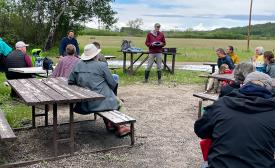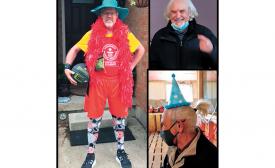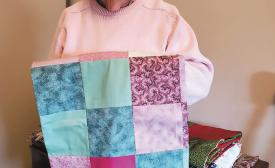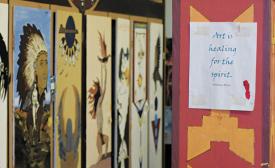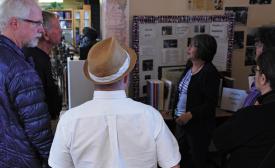Volume 25, Number 13
Precious lives
The unmarked graves of several hundred Indigenous children. A deliberate act of violence against a Muslim family out for a stroll. In recent weeks, new reports have again shown how entire groups of people suffered because of their ethnicity or beliefs.
Creating a cultural shift

“How we talk to and treat each other matters and communicates the love of God. Sometimes in church we have to be willing to have hard conversations—to talk about what healthy relationships look like—not just about how we sexually relate, but how we speak to each other, and how we treat those on the margins.” (istock.com photo by Steelalevi)
Abuse. It’s one of those topics that can stop a conversation dead in its tracks. Yet those who work in the area of abuse response and prevention say that talking about it—before it happens—is precisely what the church needs to do.
Readers write: June 21, 2021 issue
Columnist thanked for his ‘encouragement and inspiration’
Re: “Are you okay with okay?” April 26, page 11.
A pastor’s struggle
I’m surrounded by a legion of internal voices telling me I am not the pastor I should be. I’m not enough of a leader, not caring enough, not informed enough, not clear, not decisive, not doing enough. My soul cowers at the possibility that the roaring cacophony in my head is correct. Our current moment in history has laid bare my insecurities, deficiencies and anxieties of being a pastor.
Hula hoop
Breaking with its usual formal style, The Canadian Mennonite decided to print a candid photo of church leaders in 1958. While lining up for the typical serious group photograph, men gathering at St. Catharines United Mennonite Church in St. Catharines, Ont. were interrupted by a young girl unselfconsciously swinging a hula hoop.
Lament and love
Once again news headlines are about how the church has failed.
News about residential schools fill our newsfeeds, schools generally run by churches and funded by the government, with decades of separating families and leaving wounds of trauma for seven generations.
Being, doing and becoming
I’m sure you’ve heard the sayings, “We are not human doings, we are human beings,” “Just be,” or “Stop doing and start being.”
I appreciate the sentiment behind these statements, but what do they mean? What does it mean to stop doing? Stop doing what exactly? Everything?
More than just a walk in the park

Susan Olivier, left; Cyndy, Joel, Gemma and Gareth Brandt; and John Dawson stop to have their picture taken during the Walk in the Spirit of Reconciliation event on May 29. (Photo by Angelika Dawson)
Just days before the Walk in the Spirit of Reconciliation began, the Tk’emlúps te Secwépemc First Nation discovered the remains of 215 children at the site of the former Kamloops Indian Residential School. The news made the walk all the more poignant for those who participated, including me and my husband John.
The Damascus Road Initiative
This year marks a devastating milestone. It is the 10th anniversary of the war in Syria. This dreadful war has resulted in the deaths of a half-million people and is the largest displacement crisis since the Second World War.
MC Canada, ecumenical groups mobilize around Bill C-15
“I don’t think that anybody can relax until we actually hear the words ‘royal assent.’ I think we have to be all over this,” says Jennifer Preston, general secretary for Canadian Friends Service Committee (CFSC), the peace and social justice agency of Quakers in Canada.
Churches stay connected with seniors
As the pandemic continues, all in- person church programs have been cancelled and new ways of staying connected have been established. Sunday School and youth events have gone online. Committee meetings are on Zoom. Sunday morning worship services are accessed in various ways.
Mennonite Heritage Village adapts through pandemic
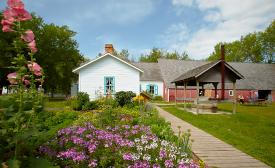
Photos by Jerry Grajewski, Grajewski Fotograph, Inc.
The Chortitz Housebarn is one of the Mennonite Heritage Village’s signature heritage buildings. It will undergo a major restoration this summer, for which the MHV is currently raising funds. Its goal is 50 percent of the renovation costs—just over $22,000.
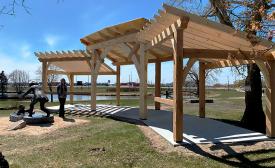
Photo courtesy of Mennonite Heritage Village
This newly constructed pergola and the Dirk Willems statue will make up the new Peace Exhibit, along with the Dirk Willems Peace Gardens and pond that are being developed this summer. When it is complete, this area of the MVH grounds will feature interpretation about the Mennonite theology of peace, contemplative places for visitors to sit and rest away from the bustle of the main street in the village and more trails for walking.

The new Mennonites at War exhibit at the Mennonite Heritage Village is currently scheduled to open on July 10 (subject to public health restrictions in place at that time) and will run until Nov. 14. It will be available to view in-person and in a 360-degree virtual tour.
Although the Mennonite Heritage Village (MVH) may look like it’s frozen in time, it has adapted impressively to the challenges of the 2020s.
Taking delight in creation
Relief sale and auction adapt to pandemic restrictions
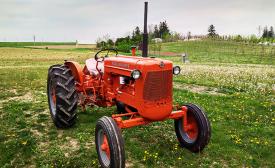
This restored Allis-Chalmers D14 tractor was the top-selling non-quilt item at the recent online relief sale. (Photo by John Reimer)
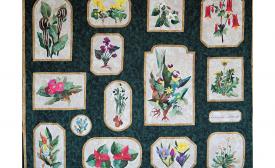
This feature quilt, sold by auction virtually for $8,300, was the top-selling item at the 2021 New Hamburg Mennonite Relief Sale. (Photo by Ken Ogasawara)

People who purchased “NHMRS-in-a-Box” received commemorative mugs, a fresh pie and fresh coffee from a local company, as a way to recreate part of the relief sale experience. (Photo by Ken Ogasawara)
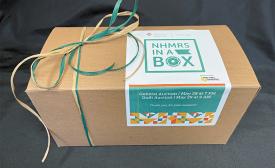
Supporters of the Relief Sale were encouraged to buy part of the experience in a box. The boxes, containing commemorative mugs, a fresh pie and fresh coffee, sold out in a few days. (Photo by Sheryl Bruggeling)

These kits were given out to sponsors as part of the Run for Relief-Run it Your Way event. (Photo by Justin Armitage)
The New Hamburg Mennonite Relief Sale (NHMRS) that raises funds for Mennonite Central Committee (MCC) had to adapt and innovate once again, as pandemic restrictions in Ontario prohibited large gatherings for the second year in a row.
‘It was a wake-up call’
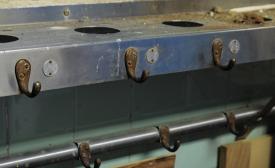
This is where the girls lined up to brush their teeth at the former Blue Quills Indian Residential School. Children were referred to by numbers, not by names. (Photo by Suzanne Gross)
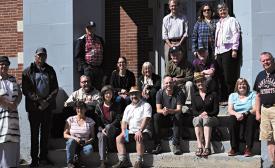
A 2018 learning tour sponsored by MCC Alberta at the University nuhelot’įne thaiyots’į nistameyimâkanak Blue Quills, formerly a residential school. (Photo by Suzanne Gross)
At the end of May, the Tk’emlúps te Secwépemc Kukpi7 First Nation discovered the grave site of around 215 children at a former residential school in Kamloops, B.C. Like many people, Jim Shantz, former Indigenous Neighbours coordinator for Mennonite Central Committee (MCC) Alberta says, “It was shocking but not surprising.”




